UP TO THE MINUTE
Copper to zinc: Choosing the right metal roof
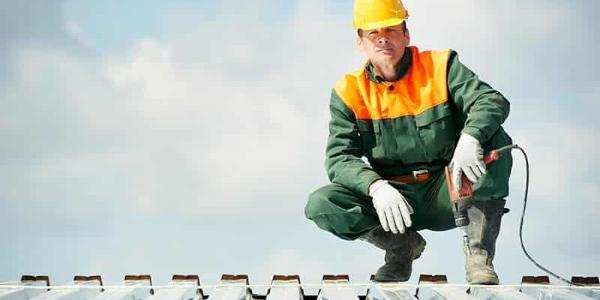
By Katelyn Bilicich, RoofSnap.
Equip yourself with these metal roofing insights to help your customers choose their perfect metal roof.
Metal roofing has evolved into one of the most durable and versatile roofing options available today. With increasing choices to meet the varying demands of homeowners, it can be difficult to decide which metal roof is right for each home. Whether your customers enjoy the sleek lines of standing seam metal roofing or the rustic charm of corrugated panels, RoofSnap put together an overview of the various types of metal roofs to provide homeowners with a practical and stylish option to match their tastes. Help your customers enjoy all the benefits of their metal roof from improved longevity and durability to increased energy efficiency and property value.
An overview of metal roofing
Metal roofing originated in England and was patented there. The process made sheets stiffer, expanded the span and created a lighter framework.
Following this type of metal roof came galvanized iron with zinc in France. With this new coating, the iron wouldn’t rust.
By the 1850s, metal roofing had come to the U.S. At the time, copper and lead were the leading metal roofing materials. It became a popular option for homes and buildings.
Since then, metal roofing has advanced significantly. Rolling mills — facilities producing flattened metal sheets — made the option low-cost. Eventually, aluminum roofing became the most used metal for roofs.
Homeowners can now gain many benefits from metal roofing, including the following:
- Metal roofs last longer than most other materials. Depending on the material, their lifespan is typically 40 to 80 years.
- They are highly durable. When installed correctly, they can withstand high wind gusts. They also won’t corrode or crack.
- Metal roofs are fire-resistant. They won’t spark or ignite into flames.
- Energy efficiency — metal roofs reflect the sun’s UV rays, helping homeowners save on cooling costs.
- Metal roofs are eco-friendly. They typically use recycled material and are 100% recyclable at the end of their life.
- Metal roofing has a distinct look. Those that form patina, like zinc and copper, are attractive and unique. Roofing is an essential part of protecting a home from the elements. That doesn’t mean it can’t be beautiful. It elevates curb appeal.
- They increase property value. It’s a premium material compared to traditional shingles. A metal roof has a 48.9% return on investment.
There are many colors and styles available. People have nearly limitless options to complement their home’s architecture.
Related article: Metal Roofing Colors: 5 Recommendations for Roofers
Types of metal roofing materials
Those in the market for a new roof have many types of metal roofing materials to consider. There are pros and cons to each, but a wide selection means there’s a good option for any home or building.
With so many aesthetics and attributes, your customers may need guidance and complete information about their options.
Let’s look at the most common types of metal roofing, their features and general pros and cons.
Standing seam metal roofing
It’s easy to identify standing seam metal roofing. It has raised seams that run vertically from peak to eaves. People love it because it’s virtually watertight and lasts 50 years or longer.
Features and characteristics
-
These roofs are resistant to extreme weather conditions as well as mold, mildew and fire.
- A seamed metal roof can be steel, aluminum, copper or zinc.
Pros and cons
- Pros include longevity, damage resistance and energy efficiency. They’re also ideal for snowy climates.
- Cons include cost (depending on the type of metal), noise when it rains and oiling if installers fasten the panels too tightly.
Popular applications and aesthetics
- The style is clean and contemporary.
- Seamed panels are available in many colors.
Maintenance requirements for lifespan
- Metal roofs need little maintenance other than keeping snow and ice off as effectively as possible.
- Regular inspections should look for any debris, scratches, rust spots or corrosion.
Metal shingles
Get the classic look of shingles with the durability of a metal roof. Metal shingles’ three-dimensional texture can mimic wooden or asphalt shingles.
Features and characteristics
- Metal shingles have a long life and are less likely to have mildew growth.
- Interlocking shingles fit together for an easy installation.
Pros and cons
- Pros include the aesthetics of shingles with greater durability and energy efficiency, longer lifespans and increased property value.
- The only major con is the cost.
Popular applications and aesthetics
- There are numerous shingle styles to align with any type of architecture.
- Many colors are available for these shingles, too.
Maintenance requirements for lifespan
- Metal shingles are low maintenance but require annual cleaning of gutters to prevent water damage.
- Lightly hosing down the shingles is also a routine part of upkeep.
Corrugated metal roofing
Corrugated metal roofing has a distinct look with an undulating texture. Depending on the material, it can be more affordable than other types of metal roofing.
Features and characteristics
- Hot-dipped galvanized steel is the typical characteristic of corrugated metal roofing.
- Galvanization plus corrugation enhances the strength of the material and makes it rust-resistant.
Pros and cons
- Pros include affordability, fast installation and less need for oil canning.
- Cons include the potential for debris to collect in the ridges, less weather tightness and additional maintenance.
Popular applications and aesthetics
- The two most common types of corrugated metal roofs are 7/8-inch and 1/2-inch.
- The aesthetic is old-fashioned rustic.
Maintenance requirements for lifespan
- Since this roofing has exposed fasteners, annual inspections are necessary to check their conditions.
- Leaf buildup and debris also need to be cleaned regularly.
Zinc roofing
Zinc roofing is one of the most durable options. It’s a robust material with many natural attributes, making it a great choice for roofs.
Features and characteristics
- This type of metal roof will patina over time and change color.
- Zinc roofs are fire-resistant and naturally inhibit the growth of mold, fungus or mildew.
Pros and cons
- Pros include its attractive look, corrosion resistance and long lifespan.
- Cons include high cost, the possibility of chalking where water runs and its limited availability.
Popular applications and aesthetics
- Zinc roofing has a striking effect, especially with the blue-gray patina.
- This material works for low-sloped, steep-sloped, flat and mansard roofs.
Maintenance requirements for lifespan
- Zinc roofing can last up to 100 years.
- Cleaning the roof of any organic matter is part of the upkeep, as well as keeping drains and gutters clear.
Copper roofing
Copper roofing has a striking appearance, as it changes color over time. It can come in tiles, shingles, panels or sheets.
Features and characteristics
- Copper roofing will patina over time and change color.
- It’s corrosion-resistant and has great longevity, lasting up to 100 years.
Pros and cons
- Pros include its beauty, lifespan, rust resistance and durability.
- Cons include a premium cost, potential for denting and limited availability.
Popular applications and aesthetics
- The copper will initially be reddish-brown and then transform to a green patina.
- Copper is an excellent fit for historic homes and distinct architecture.
Maintenance requirements for lifespan
- With proper installation, copper roofing is maintenance-free.
- An annual inspection should occur to check for any issues, and removing debris is important to protect the roof.
Aluminum roofing
An aluminum roof is a popular choice, as it’s the most lightweight of any metal. However, the strength-to-weight ratio is higher for aluminum than other materials.
Features and characteristics
-
Aluminum roofing is corrosion-resistant, malleable and lightweight.
Pros and cons
- Pros include its durability, ability to reflect heat and resistance to fire, pests and rust.
- Cons include that it’s more prone to denting, has limited availability, fewer color options and costs.
Popular applications and aesthetics
- Aluminum roofing is typically in sheets.
- It’s a good option for climates with heavy rain and coastal property, as it is less likely to rust.
Maintenance requirements for lifespan
- Removing any debris is key to preventing any denting.
- Regularly cleaning the gutters and drains and washing off dirt, mildew and stains are necessary.
Importance of choosing the right metal roof
A roof is a substantial investment for your customers. They need facts and information to make the best decision and ensure they receive the best value.
The following factors should be included in the discussion of what type of metal roof to select:
- Longevity: Your customers want a long-lasting roof that’s exceptionally durable and reliable.
- Budget: Metal roofing varies in price, with copper at the high end and corrugated metal at the low end.
- Upkeep: Many people don’t want to deal with a lot of roof maintenance. Most metal roofing doesn’t require too much work, but it’s still a deciding factor.
- Aesthetic: Your customers want an attractive roof that works with the current architecture of their home and building.
- Climate: Depending on the weather patterns of an area, some people will need to consider this, especially those that receive an abundance of snow, ice and rain.
- Comparing options: A homeowner may still be on the fence about metal versus shingles. They’ll want specifications and warranty information to influence their final choice.
Related article: Metal Roofs vs. Shingles: Which Should Roofers Recommend to Homeowners?
Top takeaway tips for choosing between types of metal roofing
Helping customers select the best type of metal roofing requires ensuring you have the knowledge of the application. Sharing the pros and cons of each supports their decision-making process.
Follow these tips for helping to choose metal roofing:
- Explain the durability and longevity of each type of metal roof.
- Describe the installation process for each material, with information about timelines and processes.
- Share images of past jobs so customers can visualize how the new roof will look.
- Provide samples of each type of metal roof.
- Inform them of maintenance requirements and best practices for a long-lasting roof.
Related article: Understanding Roofing Squares: A Guide for Roofers
Original article and photo source: RoofSnap
Learn more about RoofSnap in their Coffee Shop Directory or visit www.roofsnap.com.
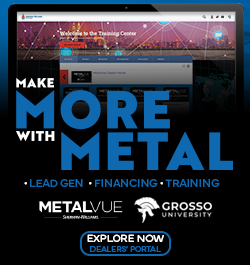


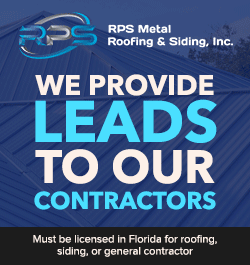

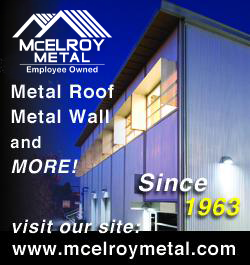






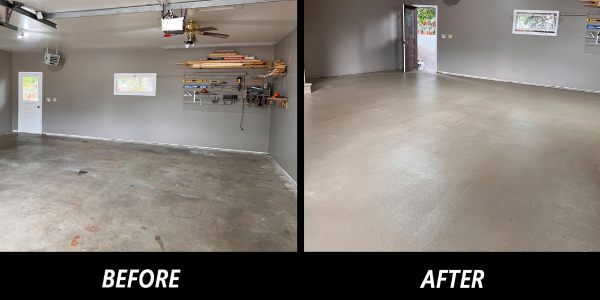

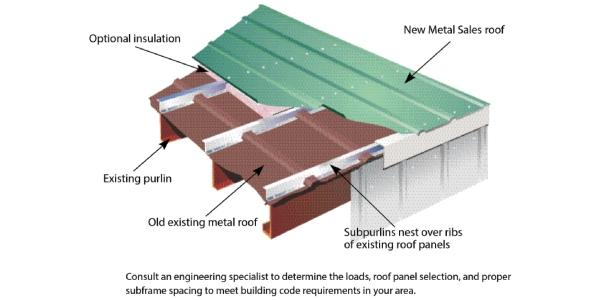


Comments
Leave a Reply
Have an account? Login to leave a comment!
Sign In